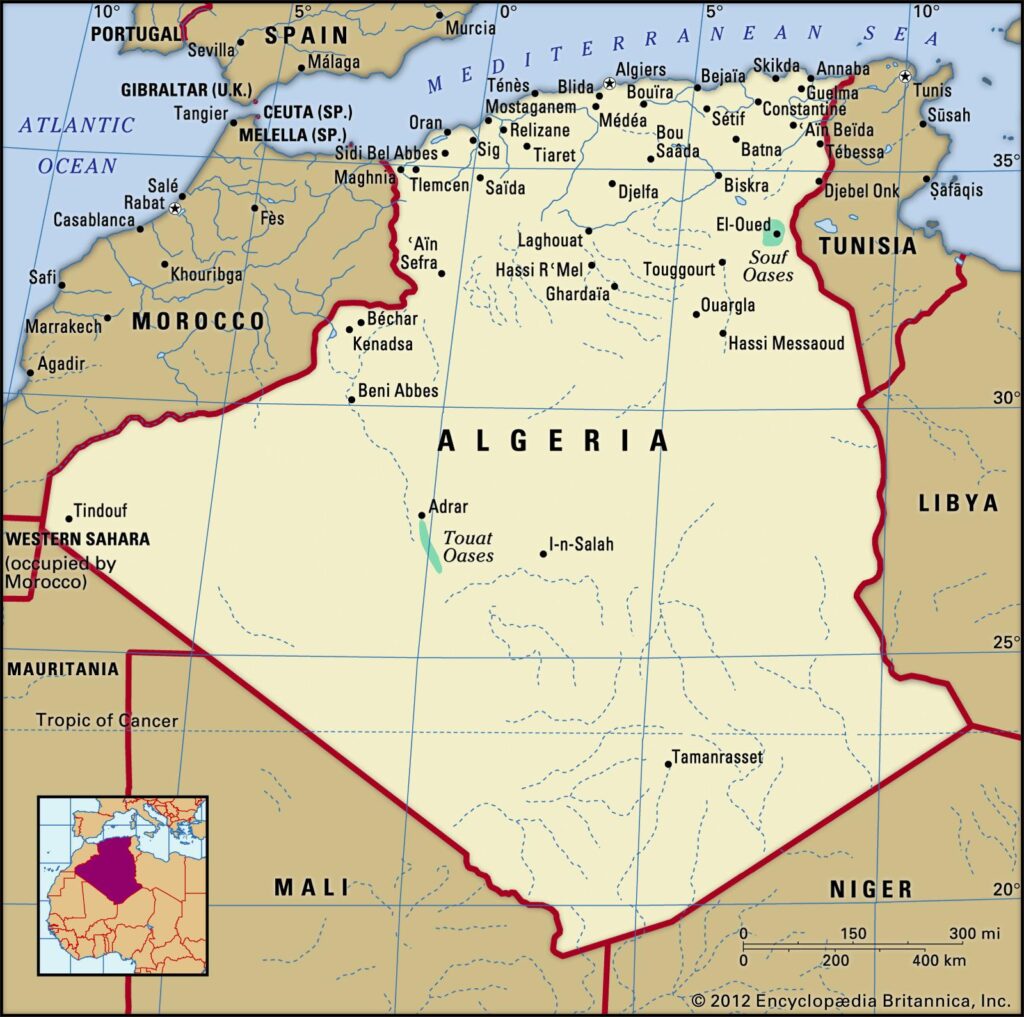Algeria Expels French Intelligence Operatives Amid Rising Diplomatic Strains
In a notable escalation of diplomatic friction, Algeria has officially expelled two French intelligence officers who were allegedly masquerading as diplomats using forged passports. This decisive action reflects mounting unease within Algeria regarding foreign espionage activities and signals a deepening rift between the North African country and its former colonial ruler, France. The incident not only spotlights Algeria’s determination to safeguard its sovereignty but also casts uncertainty over the future trajectory of Franco-Algerian relations in an already complex geopolitical environment.
Escalating Diplomatic Discord: The Algerian Response to Espionage Allegations
The Algerian authorities’ recent decision to expel two operatives from France’s intelligence services has intensified existing diplomatic tensions. Accused of employing counterfeit diplomatic documents to conduct covert operations that jeopardize national security, these agents’ actions have been met with firm condemnation by Algiers. This development adds another layer to a historically fraught relationship marked by colonial legacies and competing regional ambitions.
Experts suggest this move is emblematic of Algeria’s broader strategy to assert greater autonomy in its foreign affairs while pushing back against perceived external interference. Key areas fueling this tension include:
- National Sovereignty: Algeria is emphasizing control over its internal affairs without external meddling.
- Historical Context: Lingering grievances from the colonial era continue to influence bilateral dynamics.
- Regional Security Posture: Shifts in alliances and security collaborations may emerge as a consequence.
| Main Concerns | Potential Consequences |
|---|---|
| Espionage Activities | Tighter monitoring of foreign agents operating within Algerian borders |
| Bilateral Cooperation | Diminished collaboration across political, economic, and cultural sectors |
| Internal Security Measures | An increased focus on strengthening domestic intelligence capabilities |
The Broader Impact: How Forged Diplomatic Credentials Affect International Relations
The exposure of fake diplomatic passports used by French operatives carries significant implications beyond immediate law enforcement actions. Such breaches erode trust between nations and challenge the sanctity of established diplomatic protocols designed to facilitate peaceful international engagement. As both countries reassess their intelligence-sharing frameworks and counterintelligence strategies, heightened vigilance is expected on all sides.
This episode could trigger ripple effects impacting various domains including trade negotiations, joint security initiatives, and cultural exchanges between France and Algeria. Possible outcomes encompass:
- Deterioration in Economic Talks: Ongoing discussions about trade agreements or investment opportunities might face setbacks due to mutual distrust.
- Tightened Border Controls: Enhanced scrutiny at airports and consulates could complicate travel for diplomats and citizens alike.
- < strong >Public Sentiment Shift : strong > Nationalistic feelings may intensify within Algeria, influencing public opinion towards foreign partnerships negatively . li >
ul >A Path Forward: Enhancing Diplomatic Integrity Through Improved Security Protocols
This incident underscores an urgent need for countries worldwide—especially those with complex historical ties—to reinforce their diplomatic safeguards against fraudulent activities that threaten international trust. To address these challenges effectively , governments should consider implementing several key measures : p >
- < strong >Comprehensive Document Authentication : strong > Developing standardized global systems for verifying the legitimacy of diplomatic credentials can reduce forgery risks . li >
- < strong >Ongoing Training Initiatives : strong > Regular workshops aimed at embassy staff can improve detection skills related to counterfeit documents or suspicious conduct . li >
- < strong >Secure Intelligence Networks : strong > Establishing encrypted communication channels among allied nations facilitates timely sharing of threat information . li >
- < strong >Rigorous Vetting Processes : strong > Thorough background checks for individuals seeking diplomatic status help prevent infiltration by unauthorized actors . li > ul >
A proactive approach incorporating risk management principles will further strengthen these efforts , including : p >
Strategic Measure Description & Benefits Cohesive Intelligence Collaborationbbbbb/td> Partnering with trusted allies enables rapid exchange of data concerning suspicious activities or emerging threats. Example: NATO members routinely share counterintelligence reports enhancing collective security.
On-Site Security Audits
Conducting frequent inspections at embassies helps identify weaknesses before exploitation occurs.
Example: Several countries mandate annual embassy vulnerability assessments following international incidents.
Public Education Campaigns
Raising awareness among citizens about recognizing unusual behavior linked with diplomacy enhances community vigilance.
Example: Awareness drives during major events like summits encourage reporting suspicious activity promptly.
Implementing such comprehensive strategies will be vital in restoring confidence between nations while protecting sovereign interests amid evolving geopolitical challenges. < / tr >
Navigating Future Challenges in Franco-Algerian Relations – A Critical Juncture – A Call for Dialogue
The expulsion episode involving French spies using falsified passports serves as a stark reminder that historical grievances continue shaping contemporary diplomacy between France and Algeria. While it exposes vulnerabilities within current protocols governing international missions , it also offers an opportunity for both parties to engage constructively toward rebuilding mutual trust.
As analysts observe closely how this situation unfolds , emphasis remains on balancing national security imperatives with maintaining open channels essential for cooperation on economic development , counterterrorism efforts , migration management ,and cultural exchange.
Ultimately,the resolution lies not only in tightening procedural safeguards but fostering transparent dialogue addressing underlying issues rooted deeply within shared history.This approach promises more sustainable peacebuilding than reactive measures alone.
Further developments are expected as officials from both capitals deliberate responses aimed at mitigating fallout from this breach — underscoring how fragile yet indispensable diplomacy remains amid shifting global power dynamics.

